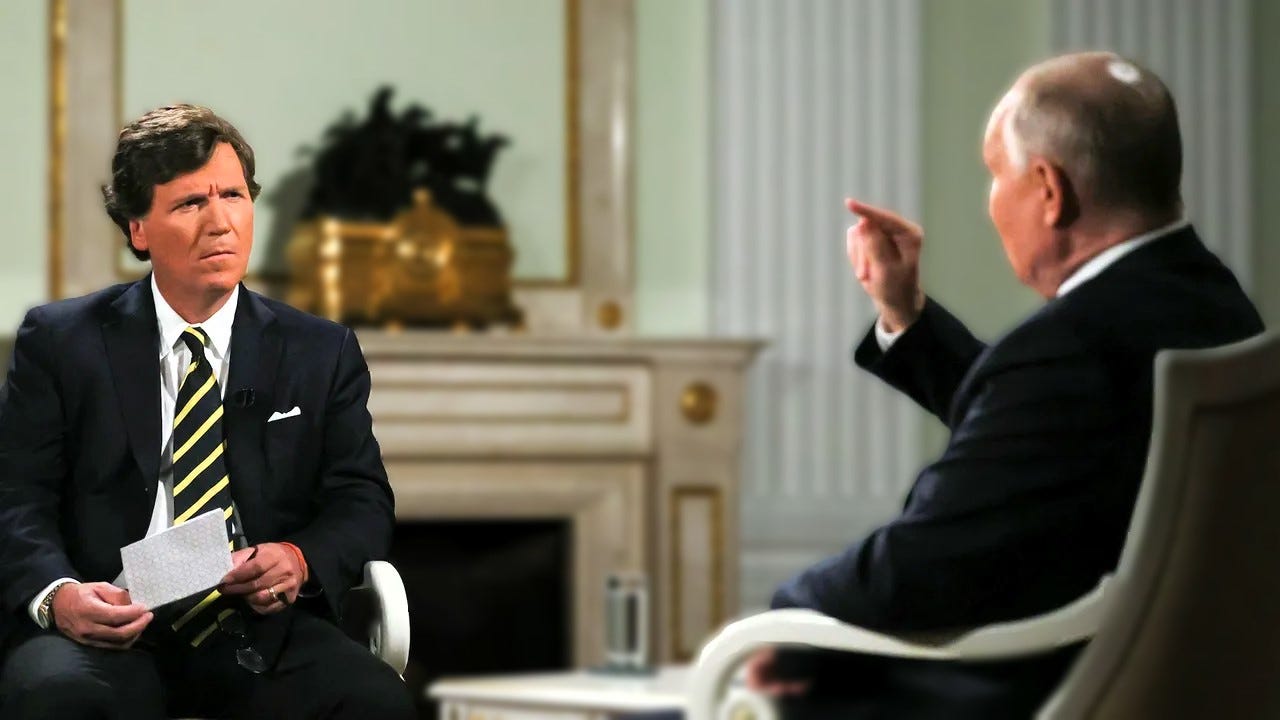Tucker Carlson's Putin Interview & the Unmasking of American Gnosticism
The new gnostics of the West are in desperate need of "gnosis": the world is not reducible to the American experience of it.
The controversial Tucker Carlson interview with Vladimir Putin in February 2024 was fascinating, meaningful, and important because it revealed—unintentionally at least as far as Carlson was concerned—the deeper logic and meaning of the Ukraine War that the interview was called to discuss. While many rightly focus on the strategic dimensions and geopolitical roots of the conflict, unless and until we have grappled with that deeper meaning, the reasons for the War’s outbreak in the first place will remain obscure and the possibility of resolving this War in a lasting way and of averting a future one will be slim.
I argue that in dealing with Russia, the tools Western policymakers – and those of the analysts who inform them – have been using are inadequate, not merely in superficial but in profound, philosophical ways. Perhaps the collapse of philosophy as a discipline (or its transformation into abstract analytics) has precluded our seeing that the gap between Russia and the West is to a large extent epistemological: we in the West and the Russians conceive the world differently and talk past each other. Our different conceptions of the world—our different priors—distort our view of the conflict leaving us with conclusions that are entirely incommensurate and incompatible.




